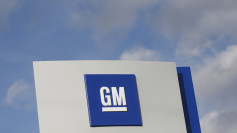The National Highway Traffic Safety Administration (NHTSA) has initiated an investigation into Ford Motor's hands-free driving technology, BlueCruise, following two fatal crashes involving Mustang Mach-E SUVs colliding with parked vehicles. The preliminary evaluation, which encompasses 130,000 2021-2024 Ford Mustang Mach-E vehicles, aims to determine whether the vehicles pose an unreasonable safety risk.
According to the NHTSA, the investigation was prompted by reports of two incidents in which Ford Mustang Mach-E vehicles equipped with BlueCruise "collided with stationary vehicles," resulting in at least one fatality each. Both collisions occurred at night on controlled-access highways' travel lanes.
The National Transportation Safety Board (NTSB) has also launched separate investigations into the two Mach-E crashes, including a Feb. 24 incident in San Antonio, Texas, where a Ford Mustang Mach-E using BlueCruise struck the rear of a stationary Honda CR-V on Interstate Highway 10, killing the 56-year-old Honda driver. The other crash, which occurred on March 3 in Philadelphia, is also under NTSB scrutiny.
Initial investigations by the NHTSA confirmed that BlueCruise was engaged immediately before both collisions. The agency stated that the investigators "will evaluate the system's performance of the dynamic driving task and driver monitoring."
Ford's BlueCruise, an advanced hands-free driving system, operates on 97% of U.S. and Canadian highways without intersections or traffic signals. The system utilizes a camera-based driver monitoring system to assess driver attentiveness. The NHTSA investigation includes Mach-E vehicles with Co-Pilot360 Active 2.0, which features various driver assistance technologies, including BlueCruise, introduced in 2021 and currently available in several Ford and Lincoln vehicles.
In a statement, Ford said it is working with the NHTSA to support the investigation. The company emphasizes on its website that BlueCruise does not replace drivers, who must remain attentive when the feature is engaged.
The probe into Ford's BlueCruise comes just a week after the NHTSA opened an investigation into Tesla's Autopilot software updates, which were part of a recall of more than 2 million vehicles in December. The updates followed a series of crashes, and the NHTSA is examining whether the recall was adequate to ensure drivers are paying attention. The agency received reports of 20 crashes involving vehicles with the new Autopilot software updates, with at least 13 fatalities in which "foreseeable driver misuse of the system played an apparent role."
As the investigation into Ford's BlueCruise technology unfolds, regulators will closely examine the system's performance and its ability to monitor driver attentiveness effectively. The outcome of this probe could have significant implications for the future development and deployment of hands-free driving technologies across the automotive industry.






